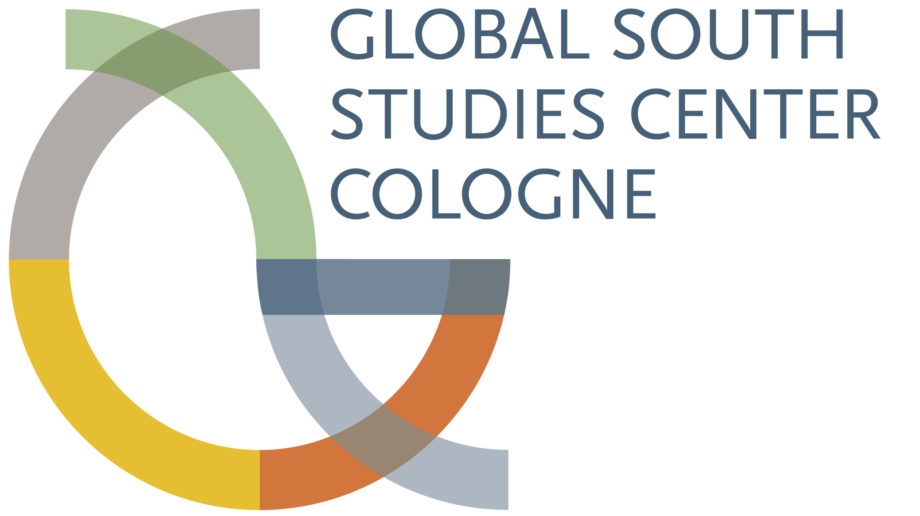About
Participatory, collaborative, action-based and shared research practices have recently gained momentum in response to calls for decolonial and non-extractive approaches to knowledge production. Central to these approaches is a focus on the co-production of knowledge, an endeavour that seeks to foster inclusivity and symmetry among all actors involved in research processes—be they researchers, collaborators, research participants, or even non-human entities. Co-producing knowledge moves beyond collaboration by emphasizing shared authorship and ownership, mutual accountability, and the active engagement of both human and non-human actors in the creation of knowledge. It requires reflecting on how power dynamics, disciplinary boundaries, and diverse epistemologies shape the research process and its outcomes. Co-producing knowledge can occur at various stages of research, such as identifying the need for research, planning and writing project proposals, implementing the project, and disseminating findings in various ways.
While symmetry and equity are often upheld as ideals, they remain aspirational norms rather than guaranteed outcomes. Intersectional hierarchies and power dynamics shape every stage of research, raising critical questions about who benefits from these processes and whose perspectives are put centre-stage.
For this edition of boasblogs, we invite short blog posts that engage with the complexities, possibilities, and challenges of co-producing knowledge in anthropological research and beyond.
Key themes include:
Reflections on Practice: Contributions may reflect on the assertion that all ethnography involves some degree of co-production. What does co-producing knowledge mean in your research? What are the challenges? Why do you strive for it?
Power and Inclusion: How can we promote inclusion and equity among diverse research actors while acknowledging the structural and intersectional power dynamics at play? What are the limits of co-producing knowledge (where does it end?)
Methodological and Epistemological Innovation: What practical and epistemological frameworks have you found effective in fostering co-production? What kinds of knowledge do you co-produce (embodied-affective, multimodal, etc.)?
Interdisciplinary and Transdisciplinary Collaboration: How can inter- and transdisciplinary approaches enhance co-production and address the needs of research participants and collaborators? What more explicit collaborative and symmetric approaches are possible?
We are particularly interested in contributions that interrogate the gains and implications of co-produced knowledge. Who profits from these efforts? How can we ensure that collaborative research serves the interests of all parties, rather than perpetuating extractive practices? By examining these questions, we hope to facilitate deeper reflections on the ethical, practical, and conceptual dimensions of collaborative knowledge-making.
We welcome texts but also multimodal or audiovisual contributions or contributions in an experimental format and are interested in perspectives from researchers, practitioners, and collaborators across fields. Written contributions should be between 3.000 and 4.000 words (the shorter, the better) and should be relatable to an interdisciplinary audience. Please send your contributions to the guest editors via the email address: coproducingknowledge@boasblogs.org
Please note the stylesheet.
Let’s co-produce this boasblog together!
Guest editors: Ute Dieckmann, Gerda Kuiper, Simone Pfeifer, Hauke-Peter Vehrs from the Thematic Area „Co-Producing Knowledge“ of the Global South Studies Centre (GSSC) at the University of Cologne.
Ute Dieckmann is a social anthropologist whose research focuses on marginalized oups, indigeneity, participatory mapping, nature conservation and human-environment relations. For many years, she worked as research coordinator at the NGO Legal Assistance Centre in Windhoek, Namibia. She co-edited the books Scraping the Pot – San in Namibia Two Decades after Independence (Legal Asisstance Centre 2014), Etosha Pan to the Skeleton Coast: Conservation Histories, Policies and Practices in North-west Namibia (Open Book Publisher 2024) and edited the book Mapping the Unmappable? Cartographic Explorations with Indigenous Peoples in Africa (transcript 2021). The precarious situation of postdoctoral researchers at German universities combined with the highly competitive academic environment led her to the decision to secure a basic income in the social sector, working with individuals, who are highly disadvantaged in society due to interrelated physical, psychological or cognitive peculiarities.
Gerda Kuiper is a cultural anthropologist based at the University of Cologne. She published the book Agro-Industrial Labor in Kenya. Cut Flower Farms and Migrant Workers’ Settlements (Palgrave, 2019) and co-edited the volume Agricultural Intensification, Environmental Conservation, Conflict and Co-existence at Lake Naivasha, Kenya (Brill 2024) with Eric Kioko (Kenyatta University, Kenya) and Michael Bollig (University of Cologne), alongside the publication of over a dozen articles and book chapters. Gerda takes a keen interest in international and interdisciplinary academic cooperation. Since 2021, she is one of the scientific coordinators of the DAAD Global Climate and Environment Center “Future African Savannas” (AFAS). In this project, she closely cooperates with colleagues at the University of Nairobi (Kenya), the Université Félix-Houphouët-Boigny in Abidjan (Côte d’Ivoire) and Bonn University (Germany).
Simone Pfeifer is a social and cultural anthropologist specialising in the dynamic intersection of media anthropology, migration studies, and religious-political contexts. She is currently working in the project “Critical Anthropology” at the Department of Social and Cultural Anthropology at Goethe University Frankfurt. Her work explores social, visual, and digital practices in post-migrant societies from a critical and reflexive perspective. Previously, her research focused on transnational social relationships between Senegal and Germany, the securitization of Islam, political violence, art and ethical challenges in ethnographic research. ORCID: 0000-0003-0367-9090, www.simone-pfeifer.de.
Hauke-Peter Vehrs is a senior lecturer in the Department of Social and Cultural Anthropology at the University of Cologne, and a member of the DFG-funded Collaborative Research Centre 228 „Future Rural Africa: Future-making and Social-Ecological Transformation“. His research focuses on local livelihoods and conservation, human-animal relations, and the environmental history of conservation-induced displacement in Namibia’s Zambezi Region. He is also continuing his research into socio-ecological transformations, land use, land cover and land tenure changes in pastoral landscapes in Baringo County, Kenya.
Support by Marie Thomalla Arellano

Funded by the Global South Studies Centre (GSSC) at the University of Cologne.































